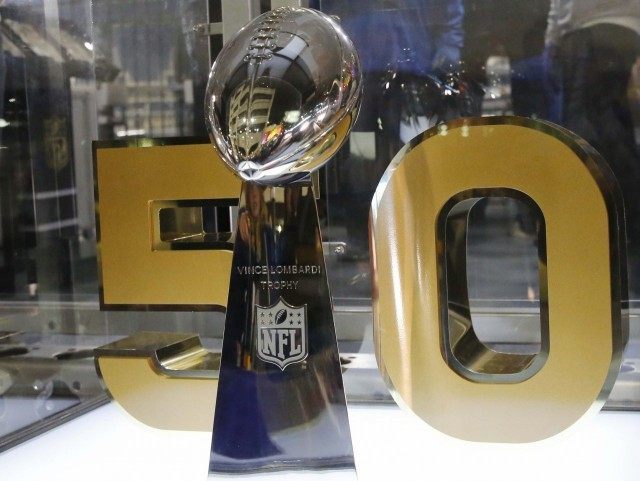The American Gambling Association estimates that Americans will wager $4.2 billion on the Super Bowl.
Hopefully, they all decide to give the points and take Carolina. The bookie, after all, never buys a round of drinks following a big score.
The trade organization representing legal gaming interests points out that 97 percent of the money wagered on the Super Bowl goes to and from illegal bookies. The AGA notes that the cash gambled in illegal bets eclipses the cash gambled in legal bets by a 35-1 ratio. The people who lay 5-to-1 odds on scratch tickets wonder why more Americans don’t gamble their money with their approved bookmakers. But with $4.1 billion of $4.2 billion gambled on the Super Bowl going through underground operations, clearly Americans don’t prefer the government guys to the good fellas.
The Super Bowl menu generally includes not just traditional wagers involving the spread (Carolina -5.5) and the over-under (45.5) but prop bets as well. These gimmick wagers this year include a total on the number of towels on Cam Newton’s body at once (2.5), a bet on whether Peyton Manning retires during the postgame presser (2 to 1), and the odds that a kicker misses an extra point (25-1 Brandon McManus, 19-1 Graham Gano). Some enterprising oddsmaker surely takes action on the Gatorade color dumped on the winning coach.
“As Americans celebrate a milestone Super Bowl, they’ll also bet a record amount on the Big Game,” AGA President Geoff Freeman noted in a release. “Just like football, sports betting has never been more popular than it is today. The casino gaming industry is leading the conversation around a new approach to sports betting that enhances consumer protections, strengthens the integrity of games and recognizes fans’ desire for greater engagement with sports.”
Just two states, Nevada and Delaware, currently offer a legal, active sports book. Montana and Oregon both sanction regulated sports gambling and can allow bookmaking operations by federal law. The feds, as New Jersey discovered this past year, prohibit the other 46 states from entering the bookmaking game. Some states disagree, and a turf war between the smaller crews states and the larger mafia federal government ensues over rights to bookmaking operations.
It’s a racket, after all, and racketeers always take drastic measures to kneecap the competition. Better to deal with the guy on the bar stool in a tracksuit and scally cap than with the bookies enjoying the state’s imprimatur. He’s more ethical. At least that’s what 97 percent of the betting public believes.

COMMENTS
Please let us know if you're having issues with commenting.